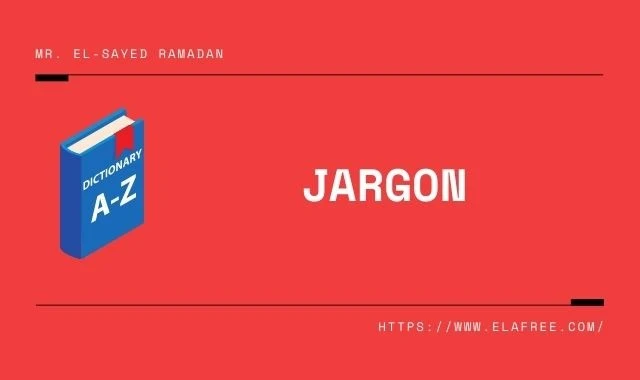Jargon
Introduction
Ever found yourself lost in a conversation filled with words you can't decipher, like "anomaly" in a medical discussion or "bug" in a tech meeting? Welcome to the world of jargon! This specialized language is designed to streamline communication within specific fields, but it can feel like a foreign language to outsiders. Whether you're a professional looking to navigate industry-specific terminology or a student keen to decode complex language, understanding jargon is invaluable. In this post, "Jargon," we'll explore the unique vocabulary that defines various professions and how mastering it can enhance your communication skills. Let's dive into the fascinating realm of jargon and unlock its secrets!
Learning Objectives
In this lesson, you will focus on the following objective:
Understanding jargon.
Jargon
Vocabulary Terms
Jargon is the specialized or technical language of a trade,
a profession such as law or medicine, art, and sports.
Literature Connection
You may not be familiar with the word artisanal in the quotation
below.
“On the job, he found he had much to learn about the way his new country operated, which often differed from the careful, artisanal manners of Holland.”
—Mark Stevens and Annalyn Swan, from “First Impressions” from De Kooning, An American Master
You may, however, have read or heard the word artisan, meaning “a skilled worker,” and know many words with the suffix –al, which means “like” or “characterized by.” The context, or setting in which the word appears, also gives you a clue that artisanal means “skillfully crafted.”
Words like artisanal, which are related to a specific field or occupation, are called
jargon. This specialized language also includes specific meanings
for common words.
For example, in “First Impressions,” a painter is described as
naïve, which generally means “lacking experience and understanding.” As jargon,
though, it refers to a painting style characterized by a lack of formal
training. A brush in this selection probably is a paintbrush,
not a hairbrush.
$$
The chart below shows some examples of jargon.
| Jargon | Specific field or occupation | Meaning when used as jargon |
|---|---|---|
| anomaly | medicine | defect |
| bug | computers and technology | error, especially in a program |
| czar | politics | person who is in charge of a policy or an agenda |
Conclusion
Mastering jargon can significantly enhance your ability to communicate within specialized fields, making you more effective and credible. By understanding the specific terms used in different industries, you can engage more meaningfully in professional conversations and avoid misunderstandings. Keep practicing with the examples and tips provided, and revisit this guide whenever you encounter unfamiliar jargon. Remember, the key to mastering any language, including jargon, lies in curiosity and consistent learning. Happy decoding, and may your conversations always be clear and impactful!
FAQs
Q: What is jargon?
A: Jargon is specialized language used by a particular group or profession. It includes words and phrases that have specific meanings within that field.
Q: How does jargon develop?
A: Jargon develops as a shorthand way for experts in a field to communicate with precision. Over time, terms become commonly understood within that industry or occupation.
Q: When is using jargon appropriate vs. inappropriate?
A: Using jargon is appropriate when communicating with others who understand those terms, but inappropriate with general audiences who may not understand the meanings.
Q: What are some examples of jargon?
A: Examples include medical, legal, financial, and technology jargon like "hematoma," "plea bargain," "capital gains," and "bandwidth." Academic fields have jargon too.
Q: How can jargon cause issues?
A: Overuse of jargon can exclude readers/listeners from understanding. However, it efficiently conveys complex meanings between experts. Finding a balance is ideal.
References
- Chung, Teresa Mihwa. "The performance of professional group identities through specialized jargons." Language in Society 48.5 (2019): 725-764.
- Bazzanella, Carla. "Jargon, lingo, slang and argot: Informal specialized vocabularies." HSK 34.1 (2017): 499-524.
- Sartor, Giovanni, and Doug Walton. "Argumentation in legal reasoning." The handbook of argumentation theory (2014): 637-682.

